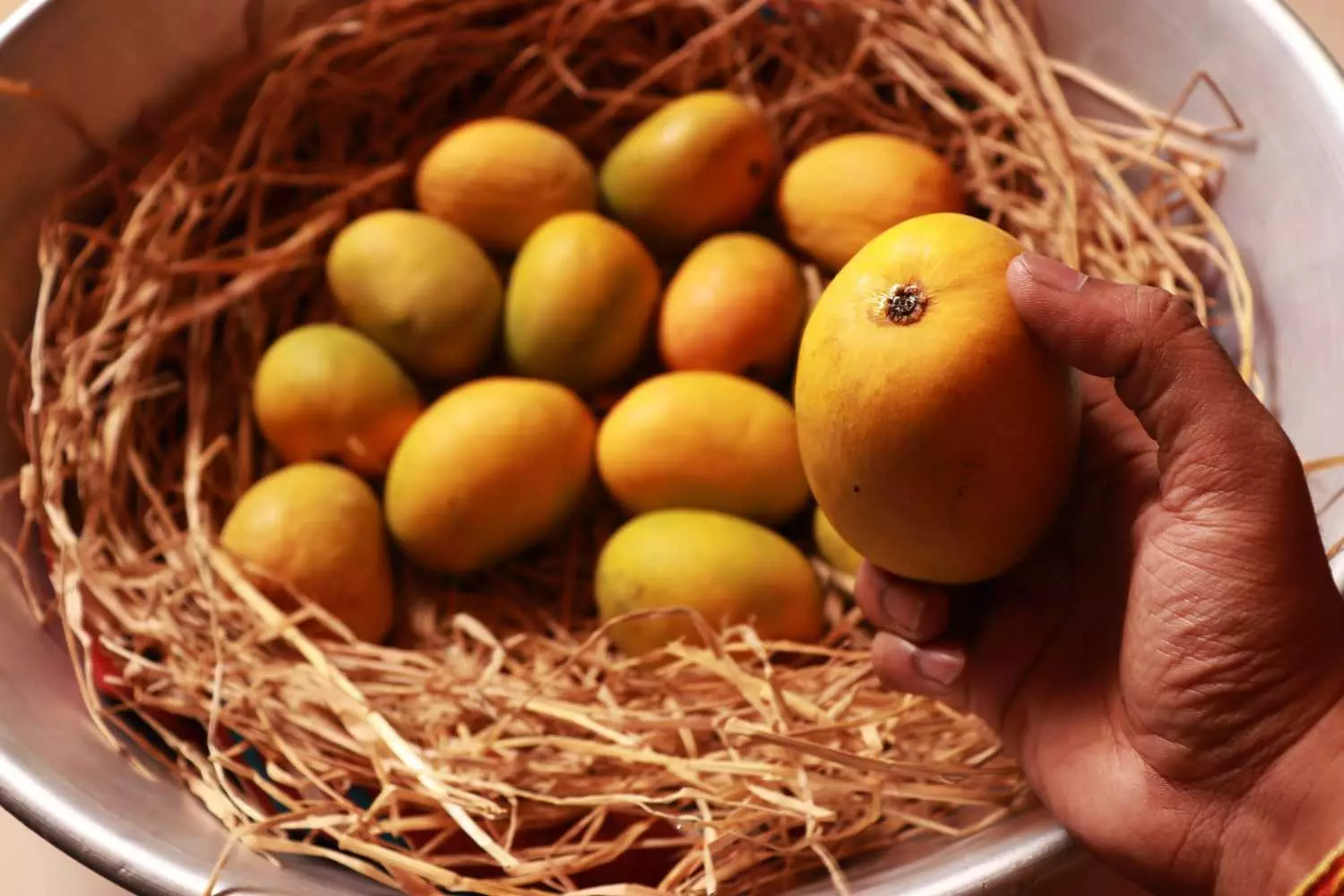
Is your mango safe? Expert offers tips to find out
Lifestyle guru Luke Coutinho has come up with 'at-home' tests to find out whether the mangoes have been artificially ripened using harmful carbides

The season for soaring temperatures and scorching sunlight is here, and with summer comes the season, or should we say ‘the reign’ of the king of fruits, mango, has also begun.
However, with tasty mangoes can also come the problem of harmful carbides, used to artificially ripen mangoes. But don’t worry. You don’t have to stop indulging yourself in the natural sweetness of mangoes. Lifestyle guru Luke Coutinho, in a video posted on Instagram, has come up with 'at-home' tests to find out whether the mangoes have been artificially ripened using harmful carbides.
Also read: Drought, severe heat, mildew attacks play havoc on mango production
Look out for tiny spots
First, he asks you to take a good look at the mango’s skin. If you see that the colour is uniform, then there is nothing to worry about, as it is a sign that the mango has ripened naturally. But if you see tiny black spots on the mango’s skin, then there is cause for concern, as it means that it has been artificially ripened.
Pressure test
Second, you can do a pressure test. It’s nothing fancy. Just hold the mango in your hands and tighten your grip. If the mango was naturally ripened, then it will feel firm, having the right amount of pulp. If it has been artificially ripened, then it will feel squishy and unnaturally soft.
Also read: Heat wave unlikely to squash mango output; 14% rise in yields this year: ICAR-CISH director
Water test
Last, but definitely not the least, is the water test. Simply drop the mango in a bucket of water. If it sinks, then it’s most likely safe to eat as it’s naturally full of pulp. But if it floats, then it may be an indication that it has been artificially ripened, leaving it with less pulp and more air inside.
“This is a simple test that all of you can do at home. Should you do the test? Absolutely, yes,” says Coutinho.
The lifestyle guru says, “Do not be afraid of the humble mango. Be afraid of a poor lifestyle.”
However, he utters a note of caution that although the simple tests suggested by him will mostly give results close to accurate, that may not always be the case. He adds, “… for accuracy, you need a lab to test.’

